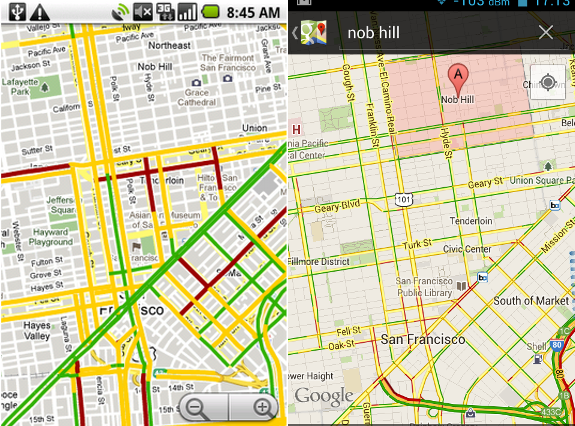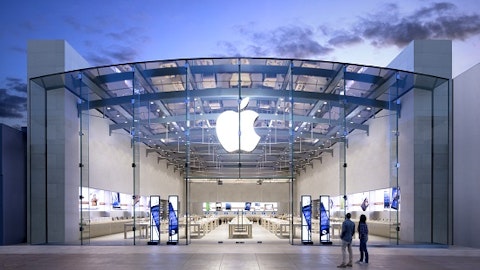Israel-based mapping service Waze found a new home in Mountain View, Ca. The rumor mill provided plenty of speculation around Waze, tapping both Apple Inc. (NASDAQ:AAPL) and Facebook Inc (NASDAQ:FB) as potential buyers. For whatever reason, Apple Inc. (NASDAQ:AAPL) didn’t get a replacement for its Apple Maps debacle, and Facebook Inc (NASDAQ:FB) still doesn’t have an in-house mapping service of any kind. So off to Google Inc (NASDAQ:GOOG) Waze goes.
Waze’s crowd-sourced traffic and navigation data may seem like a nice plug-in upgrade to the good old Google Inc (NASDAQ:GOOG) Maps asset. But all of that is a sideshow for Big G. Waze’s real attraction here is the social aspect, where users not only send in automated GPS data but also get their hands muddy via hands-on status updates.
Think “Road work on I-95,” for example, or “Carbecue on Broadway.” This is the human spice that makes Waze worth something like $1 billion to Google Inc (NASDAQ:GOOG). And since that’s the big selling point, I think we know why Facebook Inc (NASDAQ:FB) didn’t bite. That company already defines “social media,” which pushes this target’s price tag out of Facebook’s reasonable deal range. No use paying extra for what you already do well.
Let’s back up a second. Maybe you didn’t know that Google Inc (NASDAQ:GOOG) Maps already does the main thing that Waze is famous for. When you drive around with a GPS-enabled smartphone (Android or Apple, doesn’t really matter) that’s set to share location data with Google, you’re already building Google’s real-time database of current traffic speeds. It’s been like that since 2009.

Google Inc (NASDAQ:GOOG) Maps traffic maps from 2009 on the left and 2013 on the right. Both were built on real-time location reports, much like Waze’s special sauce. Image sources: Google Blog and a quick screenshot.
Back then, it seemed kind of silly to base traffic information services on the fledgling Android platform. When the feature was introduced, the American market had exactly three Android models to the best of my knowledge. The original Samsung Galaxy was announced a week earlier. Around the same time, it was a big deal when the HTC Magic (a.k.a. T-Mobile myTouch 3G) passed the 1 million unit mark.
So I understand if you forgot all about this wrinkle in the Google Maps feature set. There was hardly any reason to care about this pointless exercise.
But times have changed. Google Inc (NASDAQ:GOOG) now boasts nearly 1 billion Androids sold worldwide and Apple has shifted 600 million iOS devices. All of them won’t schlep around with Google Maps installed and GPS location sharing turned on, but it’s certainly a robust user base nowadays. For a sense of scale, Waze has about 50 million users.
Nope, this isn’t about Waze’s traffic algorithms at all. You should consider Waze to be an addition to the Google Plus social network, far more than a value-added Maps plug-in.
And I’m still wondering why Apple Inc. (NASDAQ:AAPL) didn’t buy it, since Waze would kill at least two troublesome birds with one stone.
The article Google Didn’t Buy Waze for the Maps. At All. originally appeared on Fool.com and is written by Anders Bylund.
Fool contributor Anders Bylund owns shares of Google, but he holds no other position in any company mentioned. Check out Anders’ bio and holdings or follow him on Twitter and Google+. The Motley Fool owns shares of Apple, Google, and Facebook. The Fool has bought calls on Facebook. Motley Fool newsletter services have recommended buying shares of Facebook, Apple, and Google.
Copyright © 1995 – 2013 The Motley Fool, LLC. All rights reserved. The Motley Fool has a disclosure policy.






